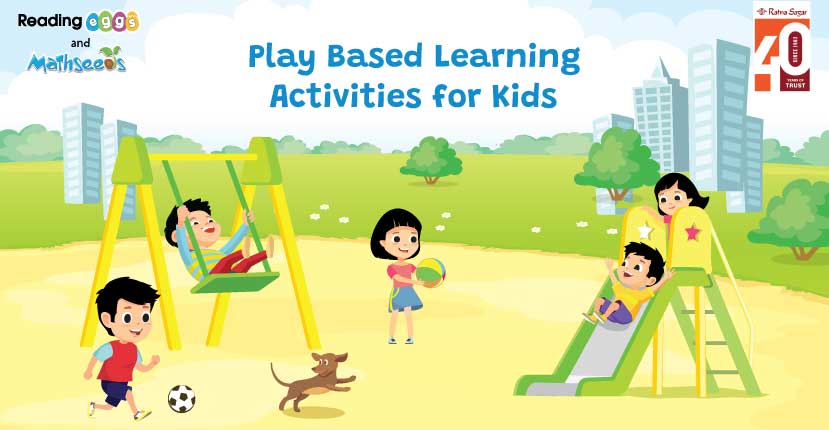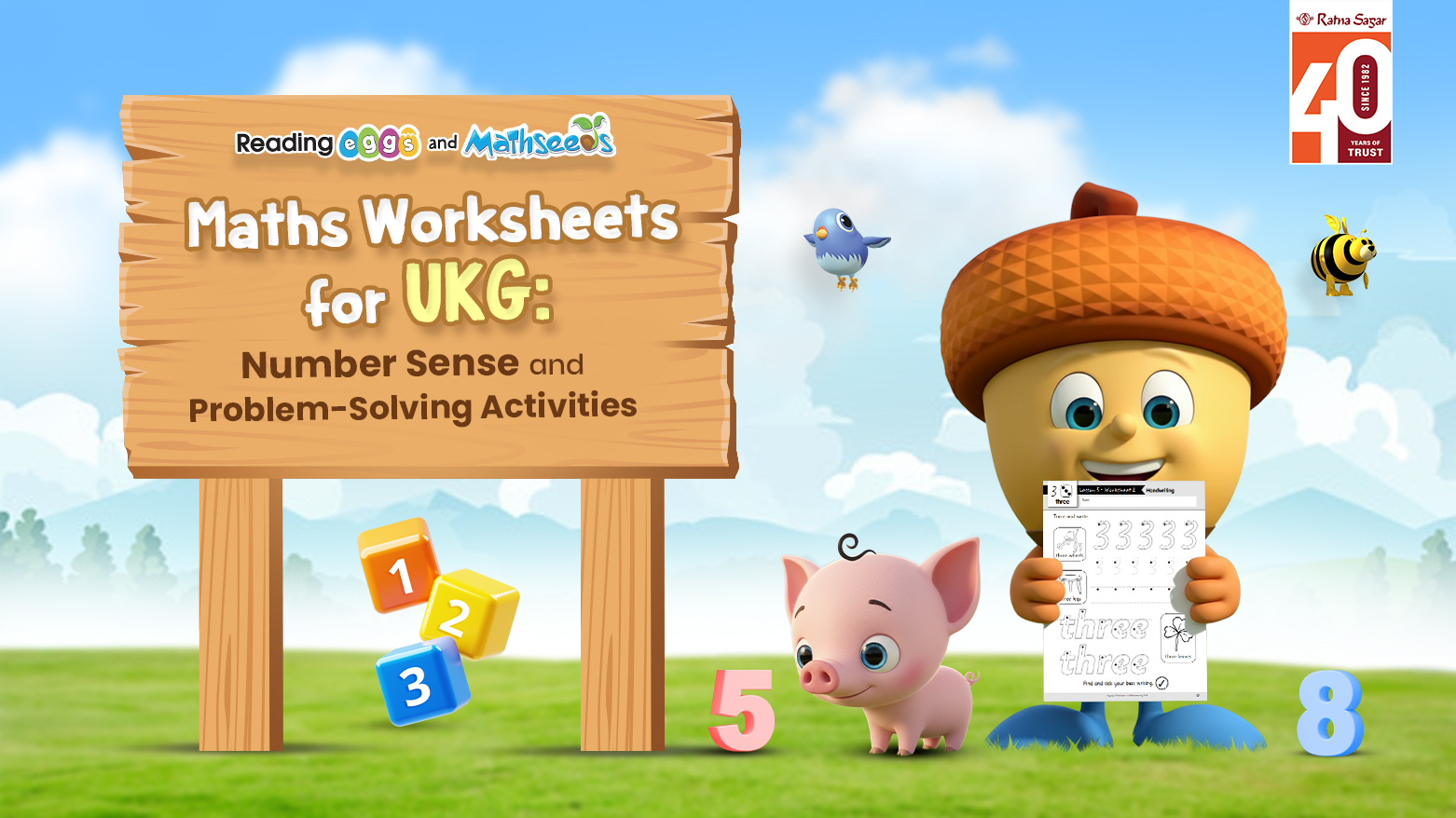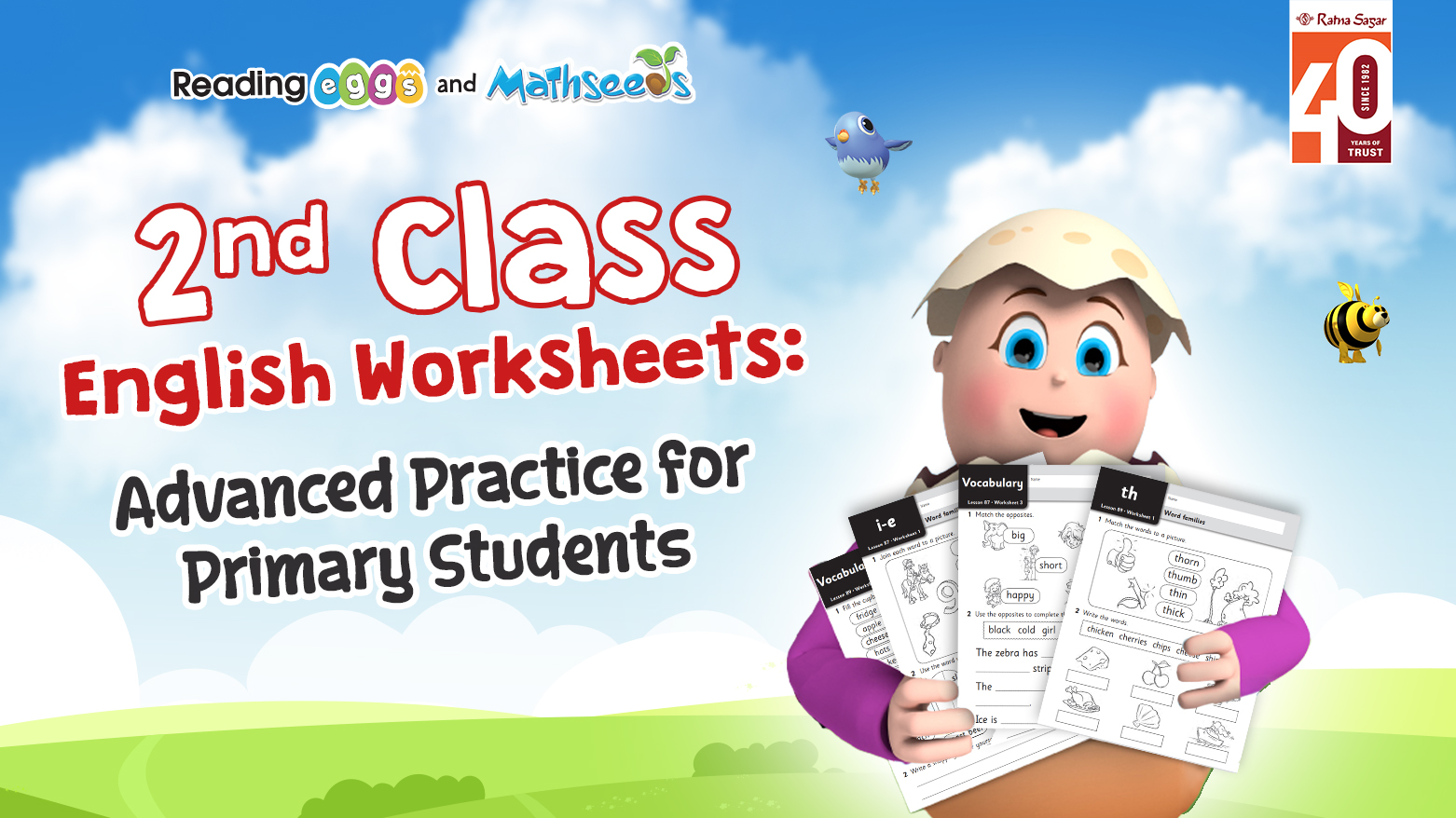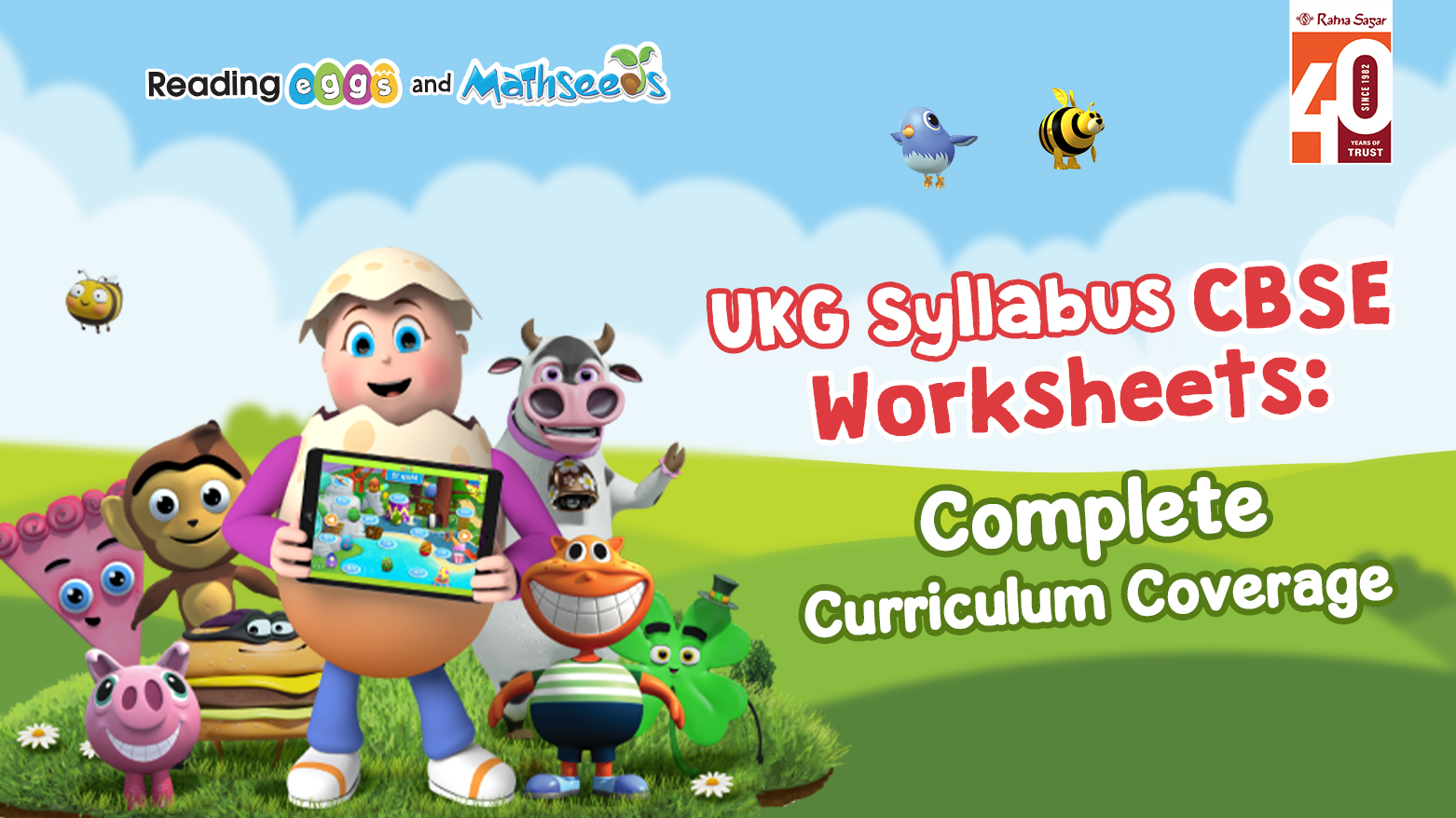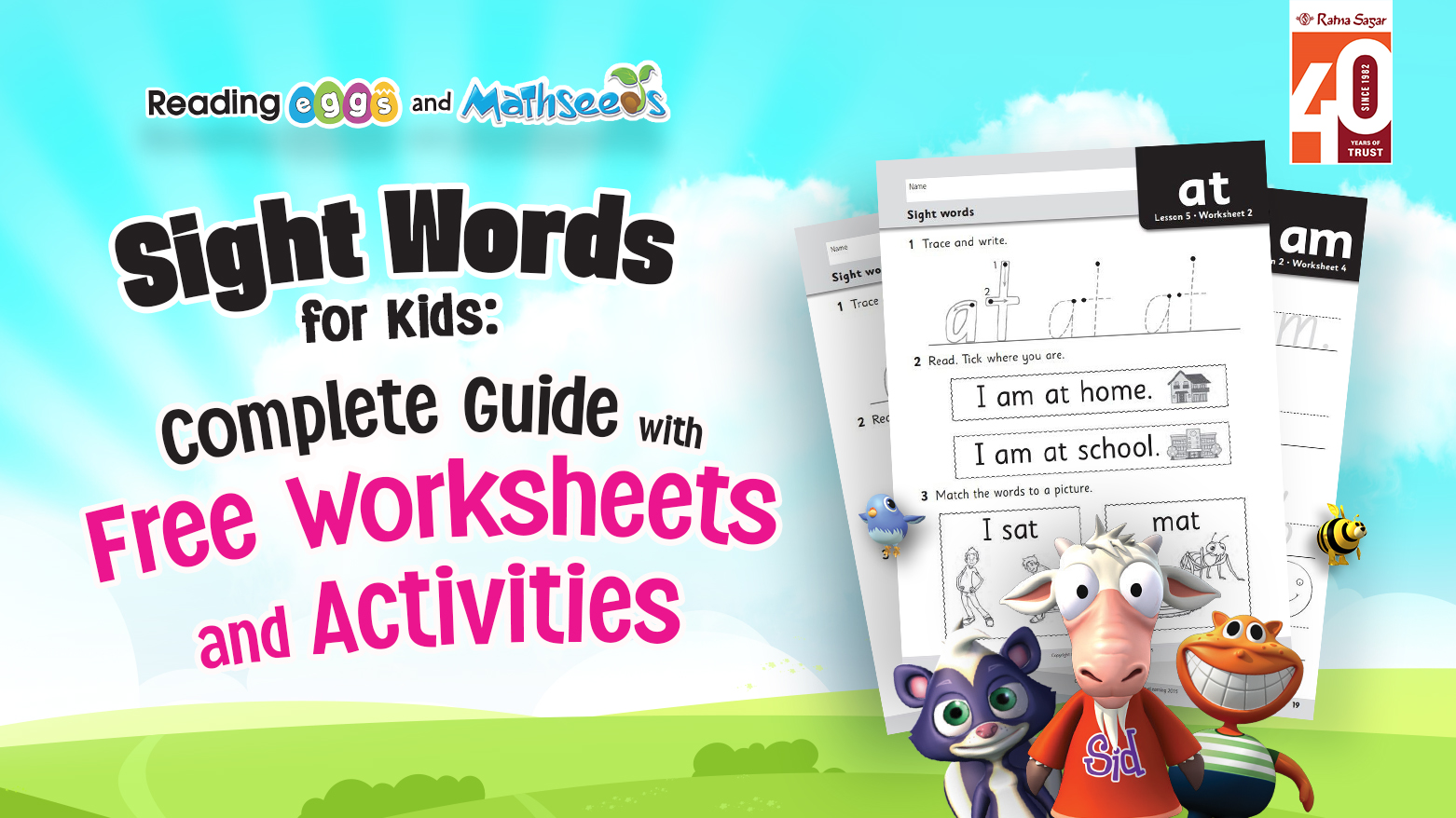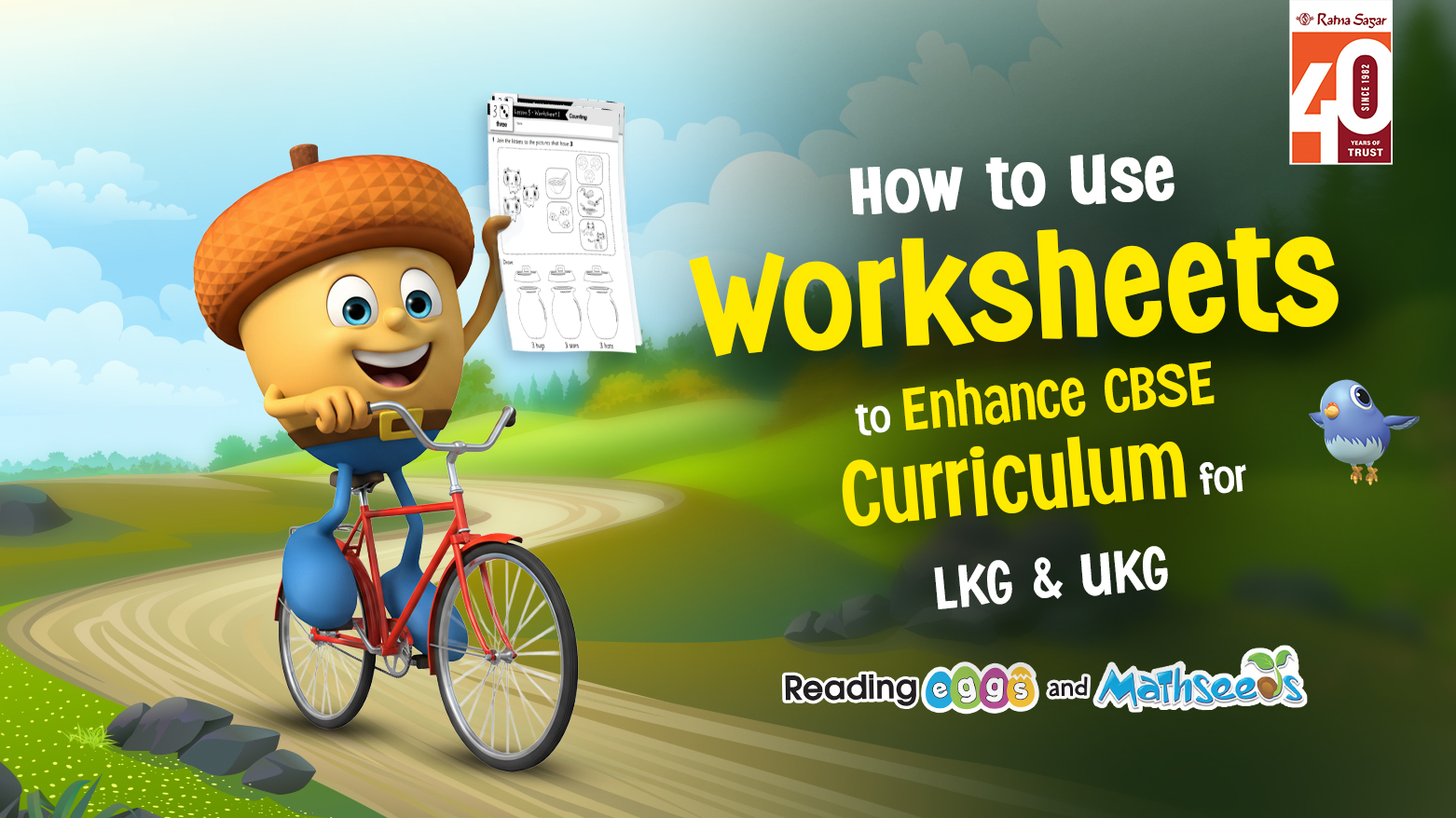What every child loves most is playing, and for them, everything in their surroundings becomes a potential play object. However, playing is not just an ordinary activity; it plays a crucial role in fostering a child's development. It sparks their imagination, cultivates social skills, and nurtures creativity. But as parents and caregivers, we would always aim to teach valuable lessons while ensuring children play happily. Learning new things is as important as spending time playing. To aid in this, we've compiled a list of play-based learning activities for kids. So, let us start.
Book 7 days FREE trial For Reading Eggs with Ratna Sagar
Play-Based Learning Activities for Kids
1. The Happy Mirror 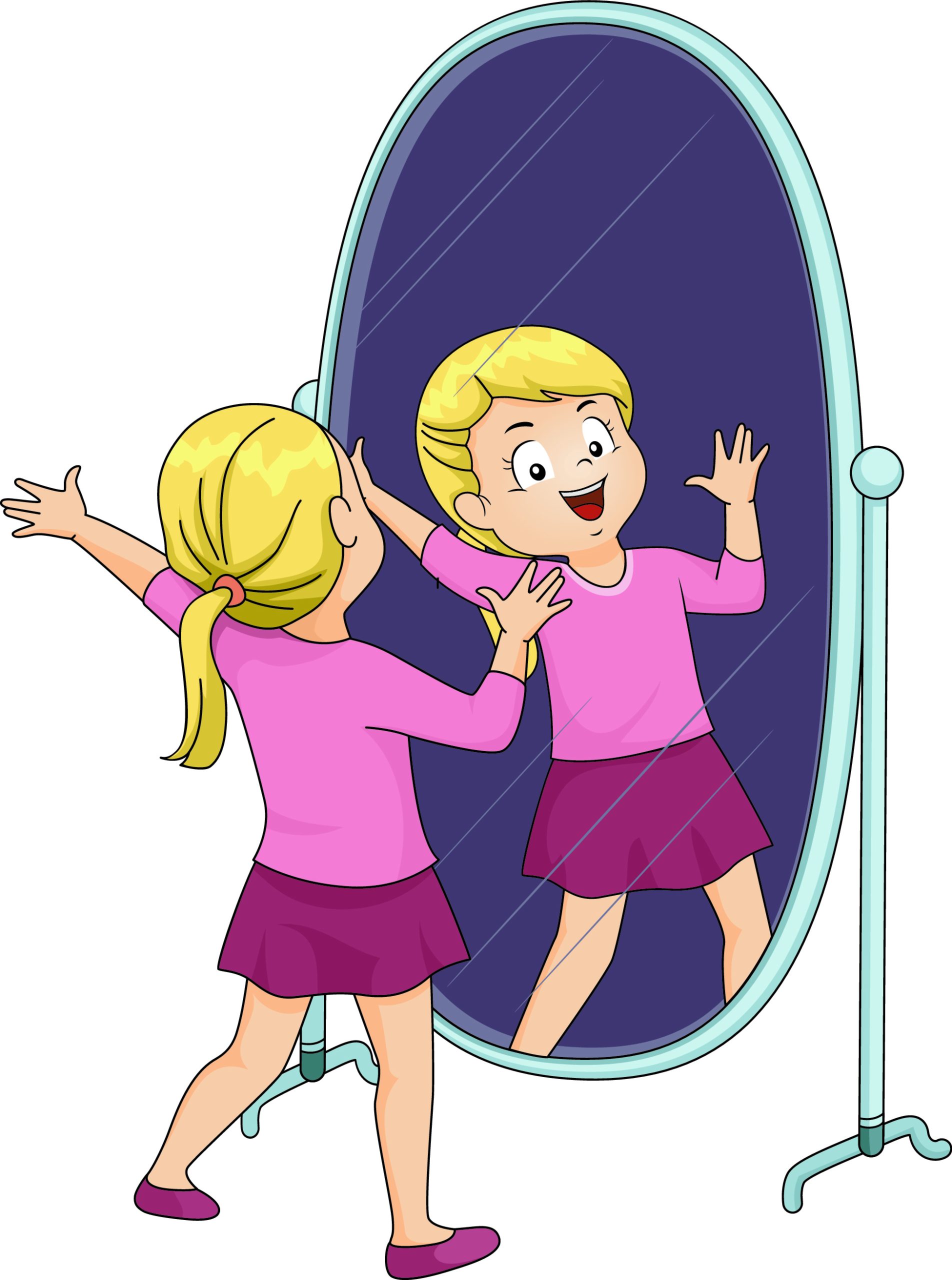 Materials Required: A mirror, masks of animals, blocks of different shapes and colours. How to Play:
Materials Required: A mirror, masks of animals, blocks of different shapes and colours. How to Play:
- Set up the mirror in a comfortable spot.
- Ask the children to put on the animal masks and observe themselves in the mirror.
- Spark creativity by instructing the children to produce sounds corresponding to the animals depicted on their masks.
- Encourage the kids to enact the fables they know, in front of the mirror.
Things to Learn: This activity fosters imagination and creativity. It lets children learn about different animals while assuming their characters. Moreover, it lets children practise stories and remember what they have already learned. The use of masks can also be a way of expressing emotions. This leads to social and emotional development, promotes empathy and understanding through character interactions. Trying different roles and characters contributes to building self-confidence. 2. Playing with Playdough and Cutters 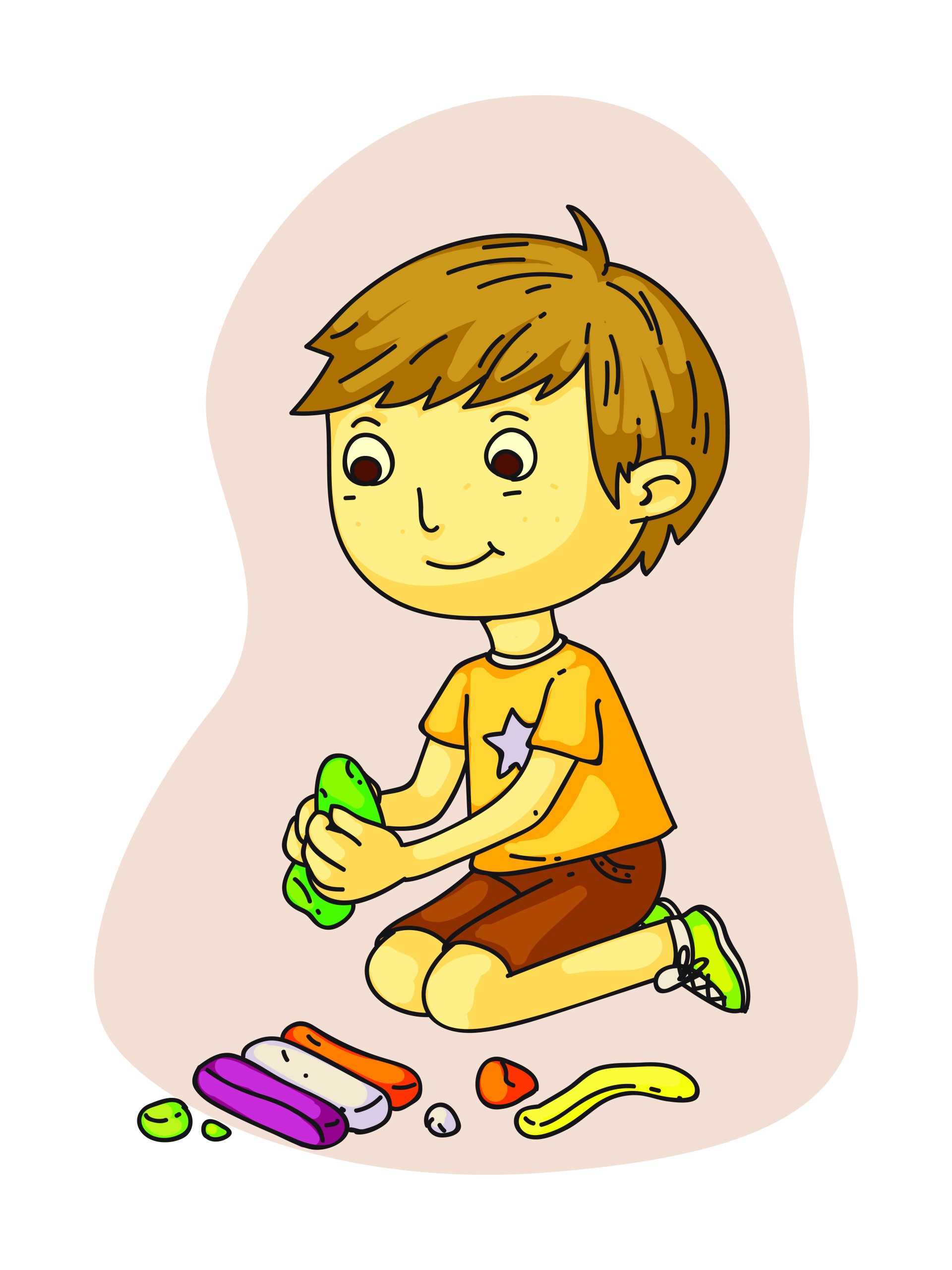
Book 7 days FREE trial For Reading Eggs with Ratna Sagar
Materials Required: Playdough, cutters How to Play:
- Roll out the playdough into a flat surface.
- Use letter, shape, and number cutters to create fun shapes.
- Let kids press the cutters into the playdough to make shapes, letters, and numbers.
Things to Learn: This activity helps kids learn about a number of things. From shaping and sorting various geometric figures to crafting letters, numbers, and even animals, with their own hands. Children can even use the playdough to make their favourite food items like a pizza, noodles or even create other colourful things like a vibrant garden. This leads to the development of their fine motor skills and fosters cognitive development. 3. Flash Cards Bingo 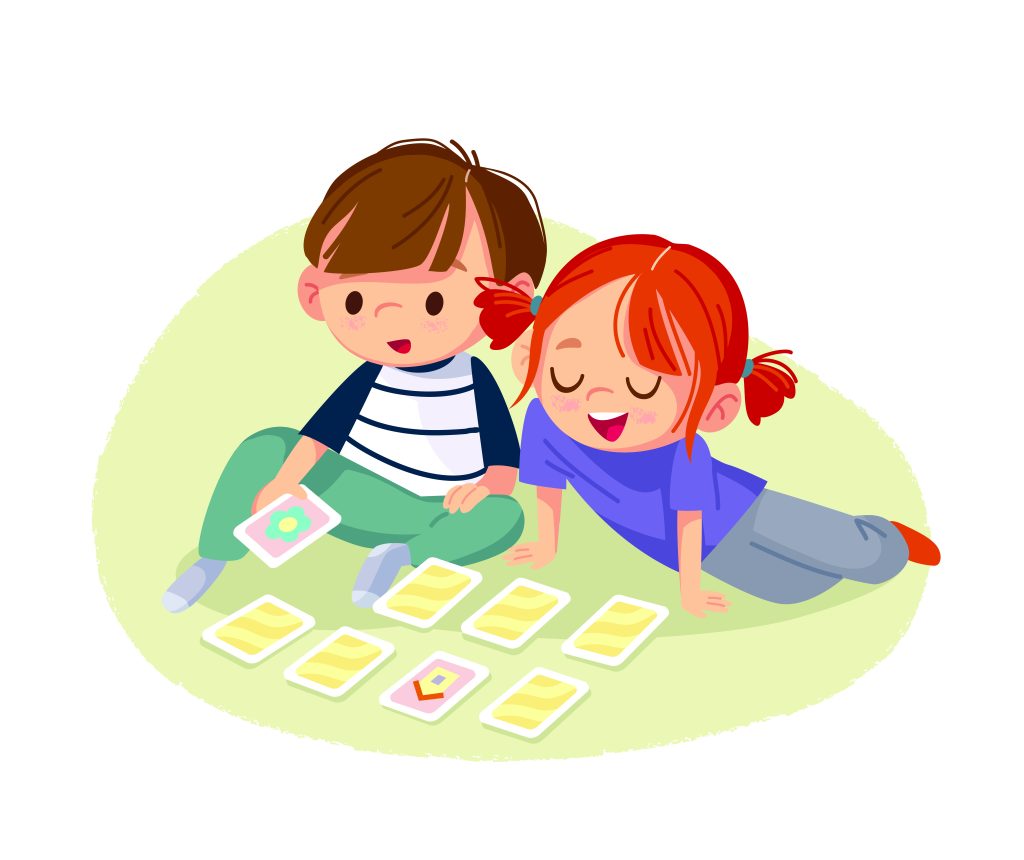 Materials Required: Bingo cards with colourful images. How to Play:
Materials Required: Bingo cards with colourful images. How to Play:
- Get Bingo cards featuring colourful images representing numbers, letters, shapes, or words
- As the caller announces items, kids actively engage with their flashcards, identifying and marking the corresponding images on their cards.
Things to Learn: This activity promotes cognitive development, improves visual recognition, and fosters social interaction as children eagerly compete to complete their bingo cards. With its entertaining and educational blend, Bingo Flash-card activity provides a lively way for young learners to reinforce fundamental concepts and enjoy the learning process. 4. We Mix Colours 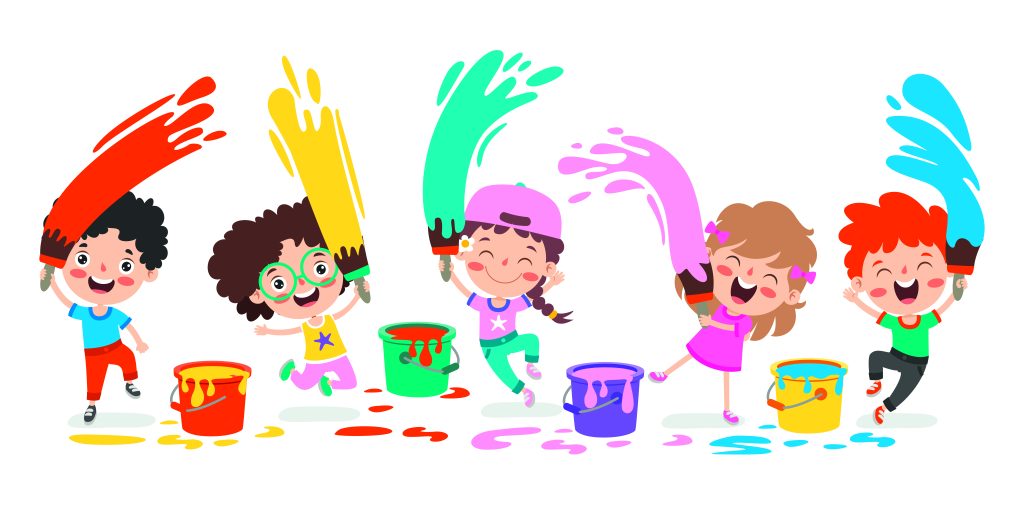 Materials Required: Jars of coloured paints, bowls, brushes, sponges. How to Play:
Materials Required: Jars of coloured paints, bowls, brushes, sponges. How to Play:
- Provide kids with jars of coloured paints and encourage them to experiment with mixing them.
- Offer a variety of tools like bowls, brushes, sponges, or even fingers for blending colours on paper or canvas.
- Introduce themed activities like creating a rainbow, mixing shades of one colour, or exploring colour gradients to make the learning experience engaging and visually stimulating.
Things to Learn: This activity enables kids to discover the magic of combining primary hues to form secondary colours but also foster fine motor skills and creativity. Whether it's swirling paint on paper, blending playdough shades, or manipulating coloured water in sensory bags, these activities provide a multisensory approach to learning about colours, encouraging a sense of curiosity and discovery in young minds. 5. Fruit Math 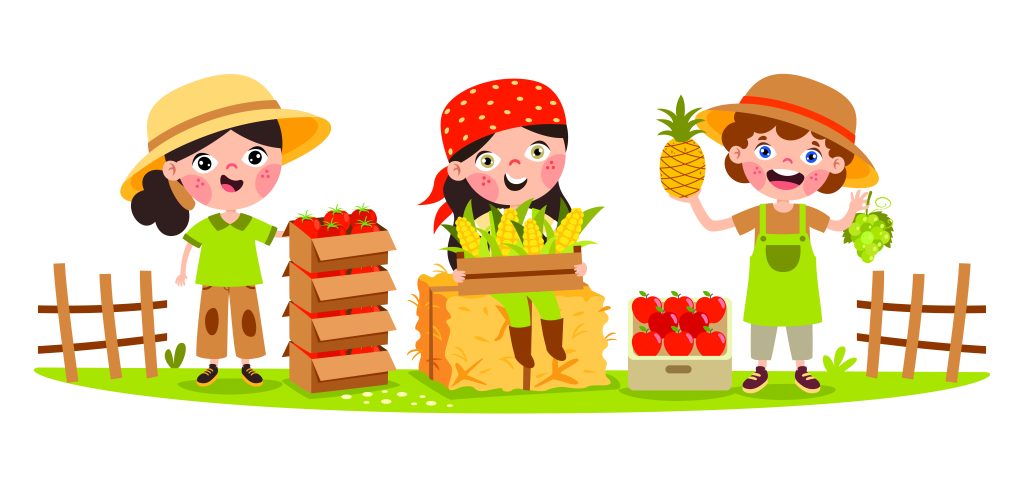
Book 7 days FREE trial For Reading Eggs with Ratna Sagar
Materials Required: Fruits (apple, bananas, oranges) How to Play:
- Start by gathering a variety of colourful fruits.
- Assign numerical values to each fruit; for example, an apple might be 5, a banana 3, and an orange 7. Lay out the fruits and ask the children to create simple maths equations using the fruit values.
- They can combine fruits to reach a target number or create addition and subtraction problems.
Things to Learn: This hands-on, visual approach helps children learn maths and makes it enjoyable. This also reinforces basic arithmetic skills in a playful and tasty manner. 6. Happy Wheel 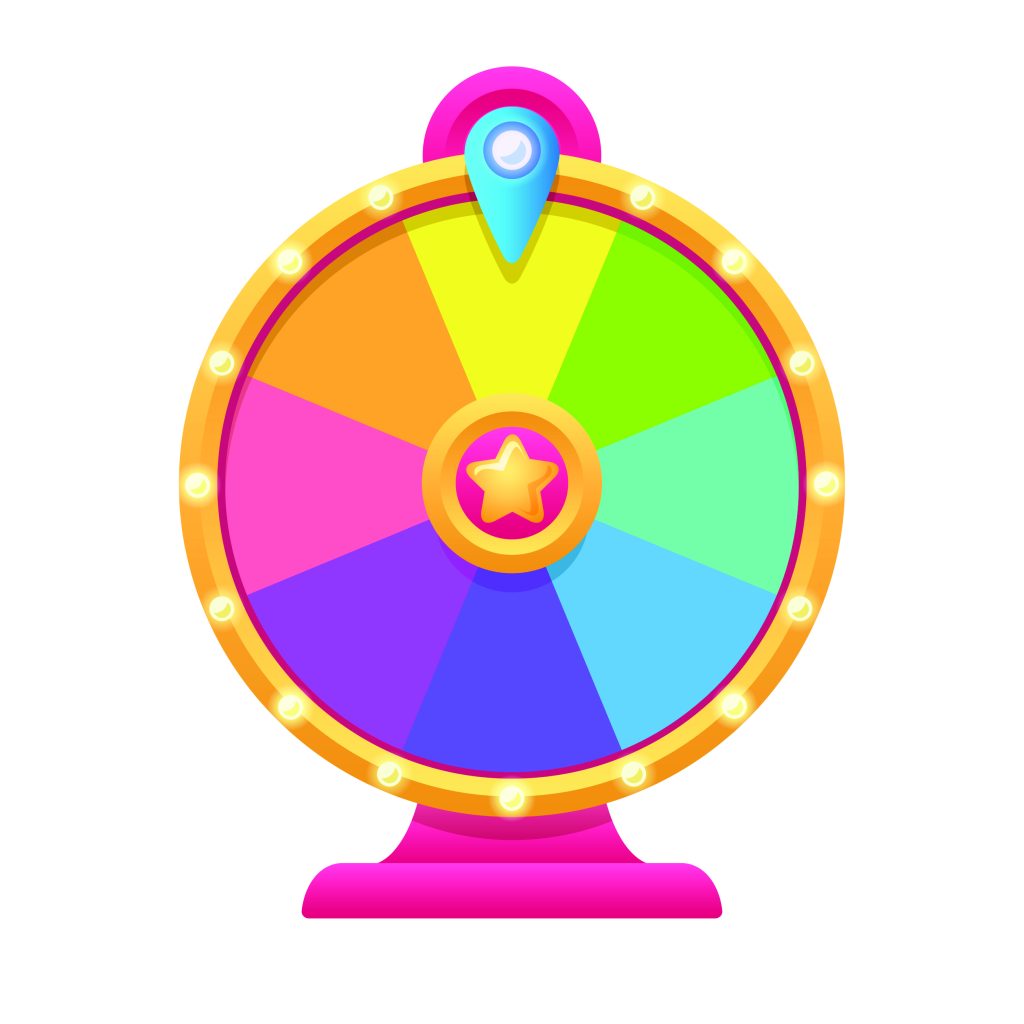 Materials Required: Cardboard, coloured pens How to Play:
Materials Required: Cardboard, coloured pens How to Play:
- Create a large circular wheel divided into sections, each labelled with a different category or task, such as "animal sounds," "maths problems," "dance moves," or "riddles."
- Attach the wheel to a central point so that it can be spun.
- Children take turns spinning the wheel, and whatever category or task it lands on, they must perform the corresponding action. For example, if it lands on "animal sounds," they might imitate the sound of a specific animal.
Things to Learn: This game offers a holistic learning experience for kids, combining cognitive, creative, and social skills development. As they spin the wheel and engage in activities, they express themselves through actions like mimicking animal sounds and inventing dance moves. Additionally, the turn-taking nature of the game promotes essential social skills, teaching children how to cooperate, communicate, and share in a lively and inclusive setting. 7. Fun with Puzzle 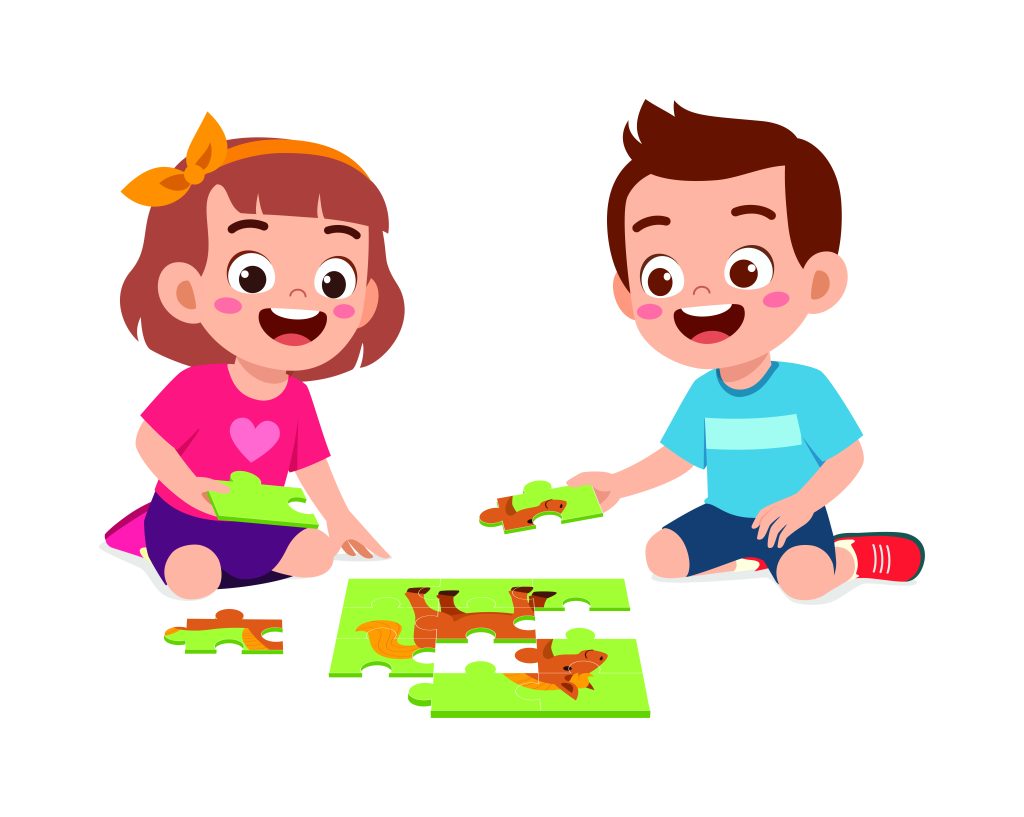 Materials Required: Customised puzzles. How to Play:
Materials Required: Customised puzzles. How to Play:
- Choose an appropriate puzzle matching the child's age and skill level.
- Explore and assemble the puzzle, starting with basic shape and colour matching.
- Celebrate success by acknowledging achievements and praising problem-solving skills to create a positive experience.
Things to Learn: This not only challenges their spatial reasoning but also promotes physical activity. As they navigate the course, kids engage in a multi-sensory experience, enhancing both their motor skills and cognitive abilities. The game ingeniously merges fun and learning, providing a dynamic and enjoyable platform for children to sharpen their minds. 8. Building Blocks Game 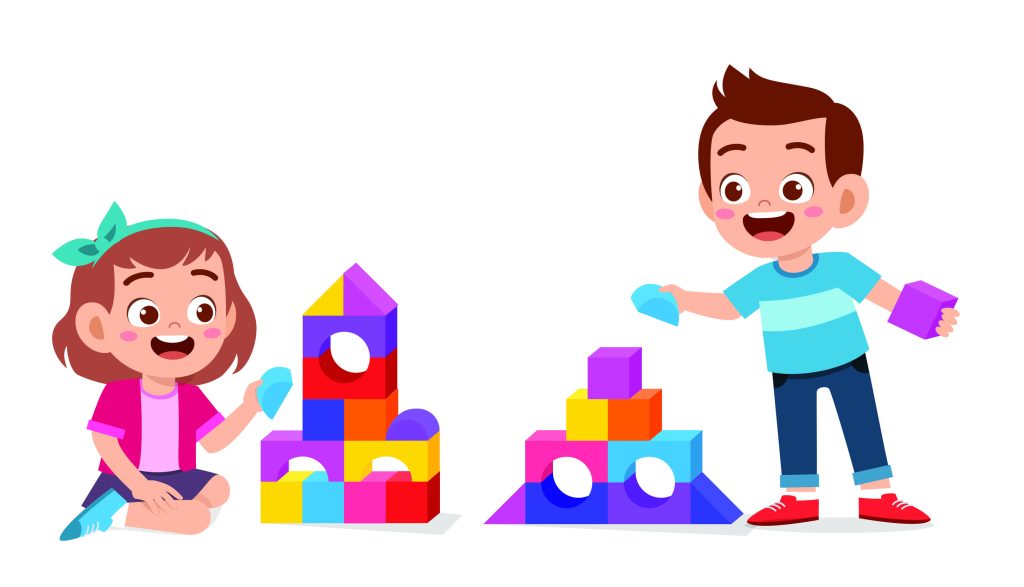 Materials Required: Building blocks How to play:
Materials Required: Building blocks How to play:
- Explore and sort the building blocks based on colours or sizes.
- Build and create structures, progressing from simple stacking to more complex designs.
- Narrate and interact with the child during play, encouraging them to describe their creations.
Things to Learn: Foster spatial awareness and fine motor skills with building blocks. Children can construct structures, learning about balance, symmetry, and problem-solving while engaging in constructive play. Play based learning activities not only promote social skills like sharing and communication but also contribute to motor skill development. Now, you must be wondering if you could incorporate education in a few games and make it fun and accessible for your little ones. Well, for that, you can even get your hands on Reading Eggs and Mathseeds with Ratna Sagar. Designed to engage and captivate young minds, this program combines child-friendly visuals, effective gamification, and rewards to inspire early learners as they embark on their learning journey. Reading Eggs and Mathseeds is designed in tandem with the play-way method suggested by the National Curriculum Framework or NCF. The play way method emphasises the importance of playing in the early stages of a child’s learning journey. It involves a child-centric approach to learning through play and hands-on activities. It stresses the significance of play in a child's cognitive, emotional, and social development. The playway method often integrates educational content into games, storytelling, and creative activities to make learning enjoyable and effective for young learners. Below are a few examples of play-based learning activities selected from the extensive array available on the Reading Eggs and Mathseeds platform. Games to learn spelling, phonics and word recognition: There are numerous spelling games available on the course platform that actively encourage students to enhance their spelling skills. These games prompt students to listen to audio, observe words, and then independently spell them. Additionally, engaging word bubble-popping games require children to pop bubbles containing words with correct spellings. There are also activities to teach children to use words in sentences. Explore a few snapshots from the wide array of games, below. Games to develop Concentration-  Source: https://sso.readingeggs.com/login Flash Cards Games-
Source: https://sso.readingeggs.com/login Flash Cards Games- 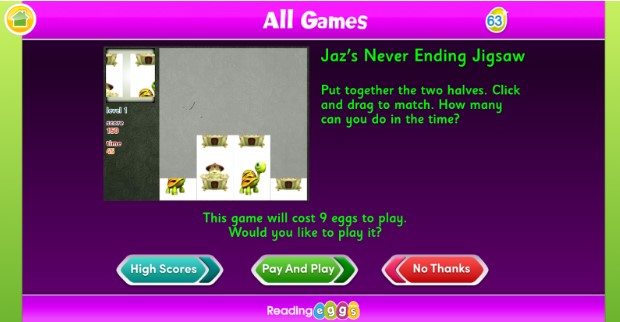 Source: https://sso.readingeggs.com/login Puzzles
Source: https://sso.readingeggs.com/login Puzzles 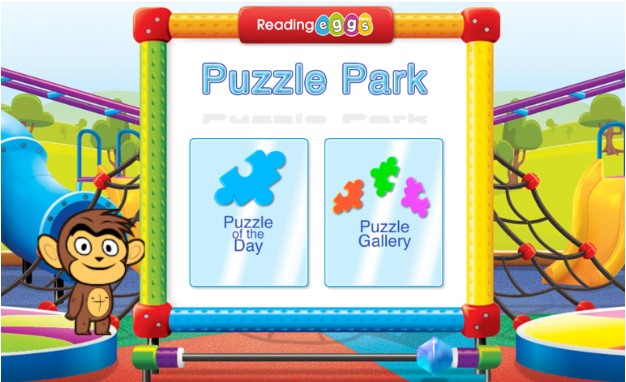 Source: https://sso.readingeggs.com/login Games to Learn about Animals
Source: https://sso.readingeggs.com/login Games to Learn about Animals 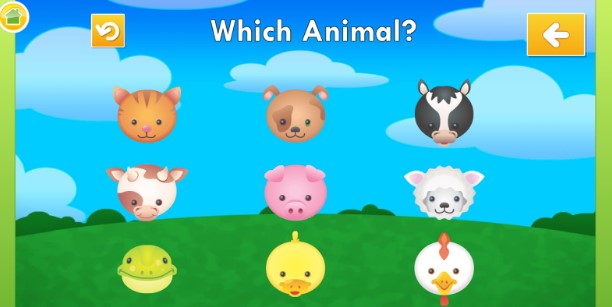
Source: https://sso.readingeggs.com/login Games to learn early maths: The platform offers a variety of mathematical activities, including number games, timed completion of sums, number series, and fractions. The learning experience is further enriched by encouraging children to listen attentively to lessons and participate in end-of-course tests. To add to the motivation, these activities are complemented with tests and rewards at the conclusion. Games like cooking, decorating, shopping, and racing are accessible on the platform. Children earn these games by solving tests, completing lessons, and achieving top scores. They enjoy a diverse range of activities as a reward for their learning accomplishments. Now if you want to get started with your child’s fun-filled learning journey, book a free trial for Reading Eggs and Mathseeds with Ratna Sagar. To help you know the program better, here is a little piece of information- Reading Eggs and Mathseeds with Ratna Sagar, is a course designed in alignment with NEP 2020 in full compliance with the SAFAL and NIPUN Bharat initiatives. It follows the footprints of the Indian government in the journey of enhancement of literacy and numeracy skills in young learners. Bringing foundational literacy and numeracy in India, is among the programme’s foremost goals. Every feature Reading Eggs and Mathseeds with Ratna Sagar offers stands as a testament to its unwavering dedication to this cause.
Book 7 days FREE trial For Reading Eggs with Ratna Sagar
